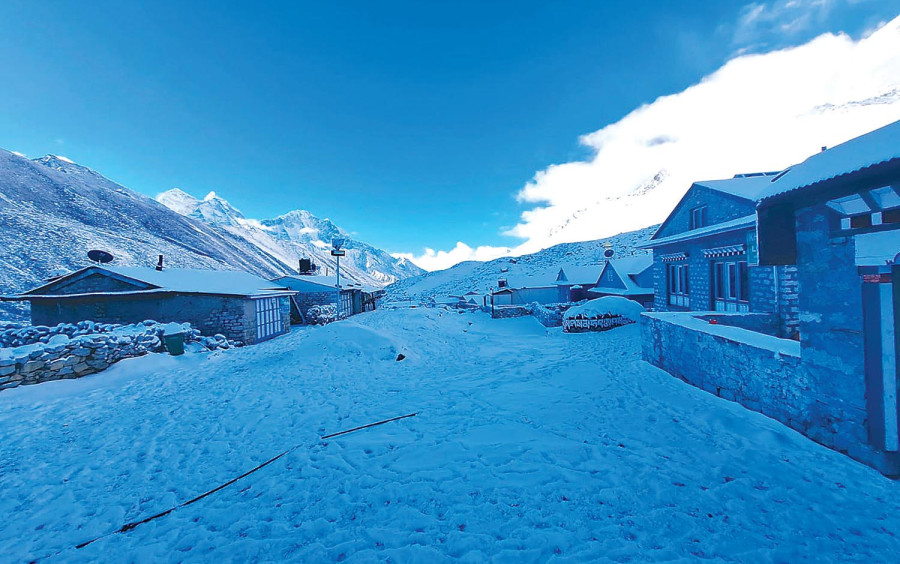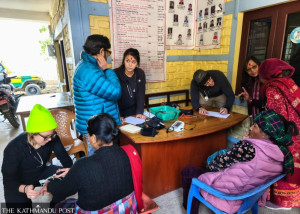Health
Cold weather and snowfall may delay HPV drive in some mountain districts
Officials plan to postpone the vaccination campaign in affected areas to March, when snow melts.
Post Report
Chilly weather conditions, coupled with snowfall in some parts of mountainous districts—Manang, Mustang, Humla, Sankhuwasabha, and others—are likely to hamper the planned immunisation drive against the human papillomavirus (HPV), which was originally scheduled to begin on February 4.
Health authorities say they have directed officials concerned to postpone the vaccination drive by at least for a month in the districts severely affected by the cold and snow.
“The HPV vaccination will be launched in March in districts, where we cannot carry out the campaign in February,” said Dr Abhiyan Gautam, chief of the Immunisation Section at the Family Welfare Division under the Department of Health Services. “The campaign will be completed within a few days once the weather becomes favourable. The target population in such areas is also very small.”
Human papillomavirus is a viral infection that spreads through skin-to-skin contact and is a leading cause of cervical cancer. Cervical cancer is the second-most common cancer in the developing world and a major cause of death among Nepali women. It is estimated that hundreds of women are diagnosed with cervical cancer in Nepal every year.
The Ministry of Health and Population has announced that girls between 10 and 14 years of age will be inoculated with a single-dose of the human papillomavirus (HPV) vaccine during a nationwide vaccination drive scheduled to start on February 4.
During the two-week long campaign that will continue until February 18, a total of 16,88,768 girls in the age group will be inoculated.
Officials said that 18,900 schools from across the country have been designated as vaccination centers. The vaccine dose will be administered from an additional 8,200 health facilities.
Over 27,000 health workers and more than 54,000 female community health volunteers (FCHVs) will be deployed for the campaign.
“We have already received all required 1,770,400 doses of the vaccine from the Global Alliance for Vaccine and Immunisation (GAVI),” said Gautam. “All necessary preparations for the campaign, including supply of the vaccine, are almost complete.”
The alliance has also provided funds to cover the campaign's operational costs, officials say.
The exact number of the patients suffering from cervical cancer is not known, but BP Koirala Memorial Cancer Hospital in Bharatpur, said that more than 700 women suffering from cervical cancer seek treatment at the hospital every year.
Experts say early treatment can prevent up to 80 percent of cervical cancer cases.
Countries like Bhutan, Sri Lanka, Thailand and the Maldives have introduced HPV vaccines nationwide, while India and Indonesia have introduced them in select districts.
Last year, Nepal purchased 20,000 doses of the HPV vaccine and administered them to around 9,000 girls aged between 14 and 15 years in all seven provinces. Two doses of the HPV vaccine were administered within a six-month period.
The government has decided to include the HPV vaccine in the routine immunisation list following the compilation of the nationwide drive.
It is estimated that there are around 350,000 girls aged 10 years who will be inoculated with the HPV vaccine.
Nepal will need to cover a certain percentage of the cost of the vaccine once it is included in the regular immunisation list, officials say.
The UN health body says HPV vaccination is recommended as part of a coordinated strategy to prevent cervical cancer and other diseases caused by the virus.




 10.12°C Kathmandu
10.12°C Kathmandu













